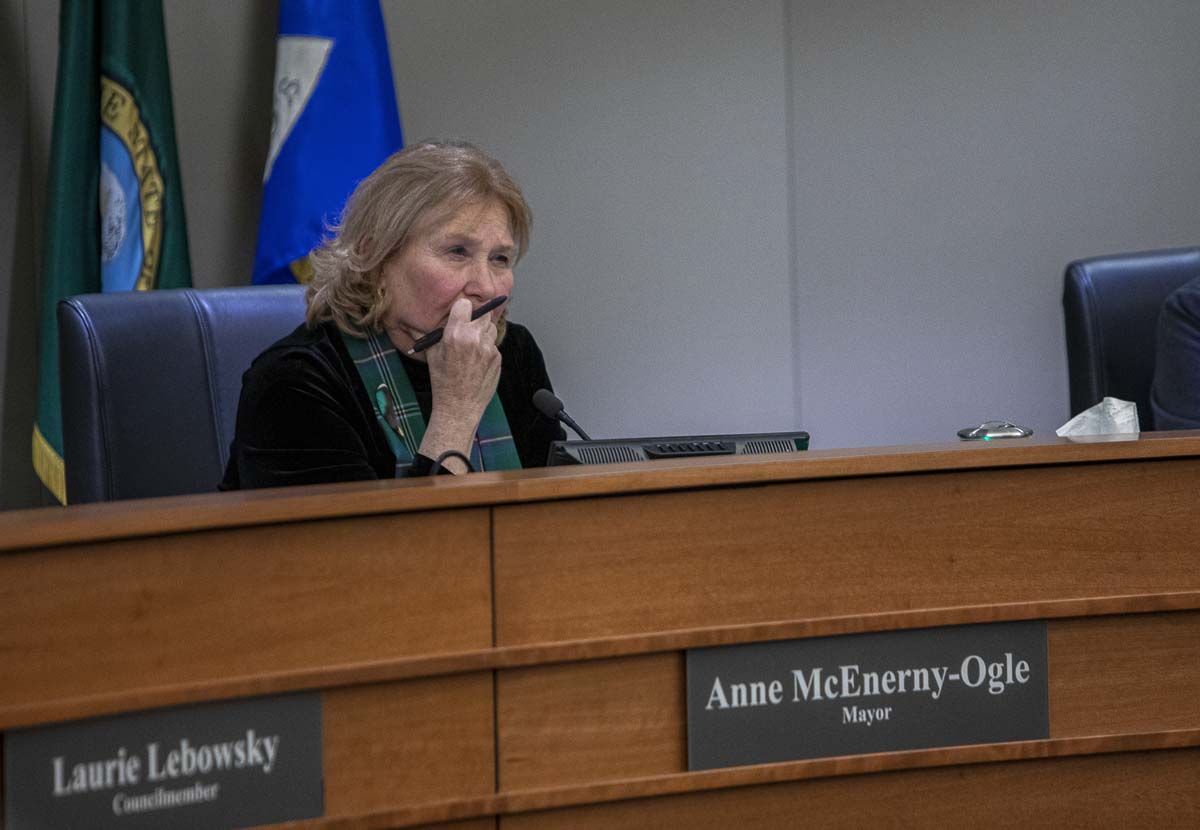Mayor Anne McEnerny-Ogle says it will take some time to understand the economic impact of the COVID-19 outbreak
VANCOUVER — Life is much different today for nearly everyone than it was even a week ago.

That includes Vancouver Mayor Anne McEnerny-Ogle who went from spending 8-10 hours a day working at city hall to spending most of her time at home with her husband Terry, a retired teacher.
“He’s a little nervous because he’s had the house to himself for so many years,” McEnerny-Ogle jokes. “Now we have to learn to dance all over again.”
The mayor now spends only a short amount of time each day at city hall, filming a video posted to Clark-Vancouver Television (CVTV.org), and signing some documents. Otherwise, she says her days have been filled with responding to questions from constituents, playing the piano again, and getting started on her garden.
“Way too many seeds so I bundled them up and took them across the street to (a neighbor), along with a pot of soil,” she says. “But that took, what, maybe 20 minutes?”
That’s not to say McEnerny-Ogle doesn’t have plenty to occupy her thoughts. There are the many conversations with City Manager Eric Holmes who, along with the city’s Chief Financial Officer Natasha Ramras, are trying to get a handle on what the shutdowns could mean for Vancouver’s budget going forward.
“We’re having her take a look at three months, six months, nine months out, and looking at the revenue that’s been impacted, and what we need to do to very conservatively stay financially healthy,” the mayor says.
During the Great Recession, the city laid off staff to help balance the budget. Today, they still operate with fewer personnel overall than before 2008.
“Is there another strategy this time around?” says McEnerny-Ogle.
The city has already put a freeze on any new hires for the immediate future, and will first look at potentially leaving positions unfilled as people retire or leave.
“We’re also going to have to look at all of our salaries and benefits, and maybe the mayor doesn’t take a salary for a year or two, or three,” says McEnerny-Ogle. “City Council looks at their salary and then employees look at their salary. Do we want people to continue working for less while we get up over the hurdle, or do we start cutting staff? There’s going to be some tough conversations.”
The city has already postponed most permitting processes, and is currently not collecting parking fees downtown. Less shopping at businesses in the city could also see the most reliable revenue source, sales taxes, dip sharply in the near future.
As for businesses currently forced to close or curtail operations due to a Stay Home, Stay Safe order issued by Gov. Jay Inslee, the city is working to get information out about available loans and grants designed to keep them afloat during the shutdown.
“I was happy to see that if the loans were for individual, small businesses that kept their employees on the payroll of some sort, they would be turned into grants afterwards,” says the mayor. “So we’ve been printing out materials and sending them out to all of the folks that are requesting them.”
Most of that effort is being led by the city’s Economic Development department, along with Columbia River Economic Development Commission (CREDC). They will be working to reach out to eligible businesses as the governor issues more clarification about who qualifies for disaster loans or grants.
Stronger Vancouver
The pandemic comes at a fragile time for the City Council, which was nearing the end of a multi-year debate over a list of funding initiatives known as Stronger Vancouver. Those conversations have been tabled for now, and McEnerny-Ogle says there’s no timeline for when they may revisit the various parts of the plan.
“Let’s take arts, culture and heritage, for example. Funding for that was the tax on theaters,” says the mayor. “Well, theaters are not showing movies. So when will theaters start showing movies? As soon as we know, then we can work on just that little piece right there, to determine how are they recovering? What speed are they recovering?”
With most construction currently shuttered, park impact fees will dry up. That was a large part of the funding mechanism for upgrades to a number of city parks, and could take some time to determine if residential construction will come back booming like it was before the outbreak.
“The levy, that’s a whole other conversation,” says McEnerny-Ogle. “We’re gonna have to wait till people start getting back to work. And that’s going to take quite a while. I suspect it could be way into the fall before we even have some of these conversations.”
Meanwhile, we’ll be having other conversations.
Such as the conversation with a cashier at Safeway who told her 40 people were lined up by 6:30 a.m. last Thursday for Safeway’s senior shopping hour.
“And the young man we were talking to when we arrived at 8:30 said he’s not seen so many old people run so fast,” the mayor laughs. “Old people, not even getting their grocery cart, running to get the toilet paper. Amazing.”
As they say, there’s a first time for everything.




